Era-C104
by MarineTLChapter 104: The Hardship of Summer Hunting
The four of them moved forward, but they didn’t see much game on the way. Lin Heng spotted two snakes—one a black rat snake and the other a black-browed racer—but didn’t catch them since his father was around.
Besides, they were small, and catching them wouldn’t mean much.
There were, however, plenty of insects due to the damp forest: centipedes, millipedes, beetles, and longhorn bugs everywhere.
Lin Wei caught a stag beetle and studied its unique shape for a long time.
“The beehive I found is on that hillside,” Lin Heng pointed toward a slope as the sun began to rise around 8 or 9 a.m.
“Let’s hope we find two wild beehives this time,” Lin Yue said with a smile.
“Grandpa, how much farther?” Lin Wei asked, already feeling tired.
“We’ve only crossed two mountains; we’ll need to climb at least three or four more,” Lin Heng said with a smile.
“If you’re too tired, you can still head back,” Lin Yue teased.
“No, I just wanted to know how far it is,” Lin Wei quickly replied. He had no intention of turning back.
However, hunting wasn’t as fun as he had imagined. After two hours, he hadn’t even seen a pheasant.
Lin Heng, with Xiongba (the dog), continued searching for game, while Lin Wei tagged along. Lin Yue and Lin Heng’s father focused mainly on foraging medicinal herbs, hunting only as a secondary goal.
“Second Uncle, this hunting is so hard,” Lin Wei said dejectedly, feeling blisters forming on his feet without finding a single animal.
Lin Heng smiled and said, “Sometimes, you don’t see any game for days. It’s much harder than this.”
“Alright, this isn’t what I imagined,” Lin Wei muttered, shaking his head in disappointment.
“Keep walking; we’re almost there. The road is just long,” Lin Heng reassured him with a pat.
They continued searching, and by the time the sun was directly overhead, they had reached Sancha Gou (Three Fork Valley). This time, they searched a smaller range compared to their last visit when they had arrived near sunset.
Carrying heavy loads, they hadn’t searched extensively along the way. Lin Heng only picked a single Ganoderma mushroom; most other fungi had rotted.
“Dad, big brother, let’s find a good place to settle first and then search at ease,” Lin Heng suggested after reuniting with his father and brother.
“Alright,” both agreed, tired from the walk.
They picked up speed by walking in a straight line. This time, Lin Heng didn’t plan to head toward the Baishi Beach area again. They had already thoroughly searched and harvested herbs there. Instead, they aimed for the waterfall where Lin Heng had previously found the Dendrobium.
Their campsite was strategically located: southwest led toward the foothills of Mount Taibai, east led to a marsh where they’d found badgers, and northeast connected to the mountain range where Lin Heng had seen musk deer.
Lin Heng’s plan was well-received, and the group followed him. By the time the sun started setting, around 4 or 5 p.m., they reached the location after snacking on some dry food along the way.
The adults managed fine—having traversed even longer distances before—but Lin Wei was completely exhausted.
“This spot looks good. Let’s set up camp here,” Lin Heng said after finding a flat, breezy area about 200 meters from a stream.
“I can’t move anymore,” Lin Wei said, collapsing onto the ground.
“I doubt Lin Wei will ever want to come again,” Lin Heng’s father chuckled, looking at his grandson.
After trekking over 30 kilometers of winding mountain paths, it was quite the challenge for a five-year-old.
“And that’s after I carried him part of the way and we took lots of breaks. Otherwise, he’d have blisters,” Lin Yue said, shaking his head helplessly.
“Let him rest. Let’s chop wood and build a shelter,” Lin Heng said. Even Xiongba, the dog, was too tired to move.
Despite being tired himself, Lin Heng knew they had to finish the shelter before nightfall.
“Should we make it triangular or another shape?” Lin Yue asked.
“Let’s make it triangular, with the sides slightly elevated,” Lin Heng replied. A raised triangle was more durable, and since they planned to stay for a while, it needed to be solid.
“You can make it sturdier by building four posts and adding a triangular roof for rain protection. Line it with plastic sheets and leaves. Around the sides, we’ll use branches and vines to weave two large hammocks about half a meter off the ground. Sleeping directly on the ground is unsafe because of venomous insects,” Lin Heng’s father suggested.
Lin Heng hesitated. “That’s a good idea, but it’s a lot of work.”
“We’re three grown men. If we’re doing it, let’s do it right,” Lin Heng’s father insisted.
Seeing no room for argument, they began chopping trees. Freshly cut trees served as support, while dry wood was used for flooring.
Lin Yue and his father focused on building the shelter while Lin Heng ventured into the forest to gather sturdy vines—specifically the kind known for their durability.
He returned with over thirty vines, each seven to eight meters long, just as the others finished building the frame.
“Dad, I don’t know how to weave hammocks. You handle that; I’ll keep working on the shelter,” Lin Heng said, tossing the vines to the ground.
“Alright, leave it to me,” his father agreed, taking a knife and getting to work.
“I’ll help too,” Lin Wei said, regaining some energy.
“Go build a clay stove for cooking later,” Lin Heng directed him.
“Got it!” Lin Wei was excited to play with mud.
By the time they finished building, the sun had set, leaving only a faint glow. Even with three people working, the rectangular shelter had taken a lot of effort. They’d reinforce the roof and surroundings the next day.
Lin Heng’s father wove hammocks differently than expected, using two wooden poles as a frame, resembling stretchers. This made setup easier: just drive forked sticks into the ground and rest the hammock poles on top.
Once mosquito nets were draped, the two hammocks—each two meters by 1.8 meters—were ready. Made of vines, they were surprisingly comfortable.
“I’m so tired,” Lin Heng groaned, collapsing onto a hammock.
Despite his exhaustion, his father immediately started cooking dinner. Lin Heng quickly got up to help, and they had a simple meal of pickled vegetable noodles. The pickles had been prepared at home, as they didn’t spoil easily.
After eating, they went straight to bed, too tired to move. Even Xiongba couldn’t be bothered to eat.
The mosquito nets turned out to be lifesavers. Without them, the relentless swarm of mosquitoes could have been deadly, potentially causing malaria.
This was why people avoided hunting in the summer. Between poisonous insects, wild animals, and the unbearable mosquitoes, the dangers far outweighed the rewards.
The next morning, everyone woke up early—not because they weren’t tired, but because the mosquitoes had kept them awake. Even with mosquito nets, any exposed skin pressed against the net was fair game for bites.
“This is unbearable. Today, we need to fix the nets and line the hammocks with palm leaves,” Lin Heng grumbled, scratching his arms.
“Agreed, we can’t go another night like this,” Lin Yue yawned.
“I didn’t sleep well either. We need to get the shelter fully reinforced today,” their father added.
Lin Wei, lying still on the hammock, groaned, “Second Uncle, I didn’t know hunting was this exhausting. I thought it would be fun.”
Lin Heng glanced at him and shrugged. “Of course, it’s exhausting. No money comes easy. In the summer, you get bitten by mosquitoes, and in the winter, you freeze. Not to mention the risks. If you don’t want this life, study hard.”
After a sigh, Lin Heng continued, “If you’re too tired, stay here. We’re heading out to scout for animal tracks and set traps this afternoon.”
“Alright, I’ll stay and watch over the camp,” Lin Wei replied, unwilling to move.
“Let’s eat first,” their father said as he started a fire to cook breakfast.
Lin Heng, taking Xiongba with him, scouted the surroundings but only found traces of small animals.
“Huh, this spot looks like a pheasant’s nesting area,” Lin Heng muttered upon finding overturned dirt and shrub roots on a large stone slab, likely disturbed while the birds searched for earthworms.
“Set a couple of hooks here,” he decided, taking out pre-prepared fishing hooks from his pack.
—
The fishing hook not only catches fish; you can also put a piece of corn on it to catch wild pheasants and golden chickens, and it’s a guaranteed success.
After setting three hooks, Lin Heng quietly left.
He then placed a few more hooks in two other places where there were traces of bird activity.
The riverbeds on both sides of this small stream were very gentle, with a sandy texture and lush green grass growing everywhere, making people hesitant to walk through directly.
Lin Heng proceeded forward, using a stick to sweep the grass as he walked.
After walking a few hundred meters upstream, the tall grass suddenly thinned out. Waist-high wild grass turned into short grass that couldn’t even cover his shoes.
“What a beautiful lawn,” Lin Heng exclaimed.
The environment here was becoming increasingly beautiful. It was a pity that it was too far from home; otherwise, bringing his wife and children here for a picnic would be perfect.
Lin Heng set two more fishing hooks, marked the spots, and then turned back.
When he returned to the shelter, the food was ready—pickled cabbage noodles for breakfast, finishing off the pickled cabbage they had brought from home the day before.
“Where are we heading after breakfast?” Lin Heng’s father asked as he ate.
“You two will follow me to set some snare traps in the Three-Forked Gorge. That place is bound to have game, and quite a lot of it.
As for other areas, feel free to do as you see fit. Just be careful, especially in the gorge. Old Man Tian nearly lost his life there last time,” Lin Heng explained.
“Alright, let’s all go together after breakfast,” Lin Heng’s father nodded.
“Don’t worry, we’re not reckless hunters. But you—be careful,” Lin Yue added with a smile.
After breakfast, Lin Heng reminded Lin Wei not to wander off. The three of them grabbed ropes and baskets and set out.
Taking a small path down into the gorge, they quickly noticed signs of disturbance everywhere—traces of animals rooting through the ground.
“These are fresh tracks; they weren’t here the last time I came,” Lin Heng said excitedly, sensing good prospects for setting traps.
“Should we start setting the traps?” Lin Heng’s father asked.
Lin Heng nodded. “Dad, Brother, do you know how to make ‘King Yama Traps’?”
“I do,” his father replied.
“I don’t know very well,” Lin Yue admitted.
“Then watch and learn. We’ll teach you,” Lin Heng said and began setting up the snare traps with the rope.
Meanwhile, their dog, Xiongba, darted around, searching for signs of wild chickens and rabbits.
With three people working together, the traps were set much faster than with one person. In just over an hour, they set up over 40 traps in the wetland area—19 “King Yama” traps, with the rest being simple snares.
“What a big pond!”
Unknowingly, the three had reached the center of the wetland, where a large pond covered with green duckweed appeared among the reeds.
“This pond must be over an acre. Let’s set a few more traps around here,” Lin Heng’s father suggested, eyeing some wild ducks in the distance.
Lin Heng agreed. He hadn’t explored this side before and didn’t realize such a large pond existed.
“Splash!”
Just as they approached the water’s edge, a loud splash suddenly echoed a few meters ahead, and water droplets scattered into the air.
Xiongba bolted over, but whatever had been there had already disappeared without a trace.
“What was that?” Lin Yue asked, startled.
“Probably a snakehead or catfish. Ponds like this usually have those two kinds of fish,” Lin Heng’s father commented.
“We’ll find out when we catch it. I brought fishing hooks,” Lin Heng said with a grin. He took out some pre-tied hooks and handed three each to his father and brother, suggesting they bait them with grasshoppers or similar insects near the water’s edge.
The large hooks had barbs, so there was no fear of the fish escaping—they could check the traps tomorrow.
“Good thinking bringing these hooks,” Lin Heng’s father praised, baiting his hook with a grasshopper.
Lin Heng grabbed a small green frog and said with a laugh, “Different baits—we’ll see who catches a fish first.”
Once the hooks were set, the three of them placed a few more traps along the pond’s edge and prepared to head into the forest.
Unfortunately, they didn’t encounter any rabbits or wild chickens along the way, so Xiongba didn’t get a chance to show off.
Just as they were about to enter the forest, a gray shadow suddenly darted out of the tall grass beside them, speeding toward the river valley below.
“Woof!”
Xiongba’s eyes lit up, and he bolted after it like a hunting cheetah. The distance of thirty or forty meters shrank to less than ten meters in an instant.
Lin Heng’s father and brother were both stunned. At first, they doubted whether Xiongba could catch it—after all, the rabbit was incredibly fast.
But within seconds, their eyes widened in shock. This was their first time seeing Xiongba hunt—its power and speed truly lived up to its name.
In just a few seconds, Xiongba caught up with the rabbit. At the last moment, the rabbit tried to escape with a sharp turn, its signature maneuver to shake off predators. However, Xiongba seemed to anticipate the move and turned early, pouncing on the rabbit and biting it.
“Splash!”
“Squeak! Squeak!”
After a brief scuffle in the grass, Xiongba proudly returned with the rabbit clamped in its jaws.
“Incredible! This dog is like the Red Hare among horses and Lü Bu among men—so fierce!” Lin Yue exclaimed.
Lin Heng’s father gave a thumbs-up, full of admiration. “This dog is undoubtedly the best in our village.”
Lin Heng grinned with pride, took the dead rabbit, and rubbed Xiongba’s head and chest. “Tonight, you’ll have rabbit meat—and fish, too.”
“Woof!”
Xiongba panted happily, clearly proud of itself.
“Dad, how much do you think this rabbit weighs?” Lin Heng asked, tossing the large gray rabbit to his father.
“This has to be four or five pounds. Xiongba is amazing,” Lin Heng’s father said, beaming with joy.
“Looks like we’ll have meat for dinner tonight,” Lin Yue added cheerfully. Getting a catch on just their second day gave him high hopes for the rest of the trip.
After praising Xiongba, the three continued their exploration. They were now on the southern mountain slope of the gorge, with their shelter to the southwest.
They didn’t spot many signs of game, so they casually set five or six traps along a forest trail.
Although there weren’t many signs of animals, they found plenty of medicinal herbs. Lin Heng’s father discovered a patch of astragalus, and Lin Yue found a lot of “prince ginseng.”
Lin Heng split off from them, heading back to the shelter to prepare for the northern part of the gorge, where he had previously spotted musk deer. He planned to set some “King Yama” traps there.
On the way back, he picked three ganoderma mushrooms. Near the shelter, he suddenly stopped.
Looking at the bushes on a stone slope in the distance, he muttered, “Could that be polygonatum?”
The leaves were whorled, long and lance-shaped, with slightly curved tips, resembling polygonatum.
“Well, let’s dig it up and see.”
Using a stick, Lin Heng dug into the soil.
Polygonatum isn’t particularly valuable but has high medicinal value. In ancient times, it was revered, even used by immortals in their alchemical pursuits.
“It’s definitely polygonatum,” he confirmed upon seeing the yellow rhizome segmented with annual growth marks.
“This is a big one—probably seven to ten years old,” Lin Heng said happily, digging up four or five pounds of the root.
Polygonatum has various health benefits, including nourishing qi and yin, strengthening the spleen, moistening the lungs, and replenishing the kidneys. Even if he didn’t sell it, he could use it at home to stew chicken or ribs for its health benefits.
After ensuring the plant could regrow by leaving part of the root in the soil, Lin Heng continued to dig up the rest.
He soon discovered more plants nearby—four or five in total—likely offspring of the large one.
“Dig them all!” he said, taking what he needed while leaving enough to allow regrowth.
—
(End of the chapter)

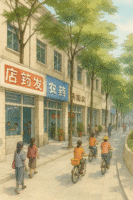


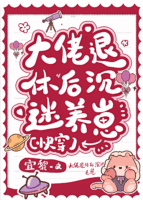

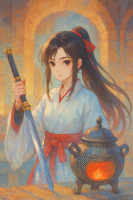
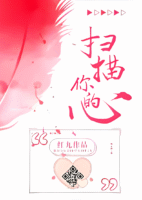
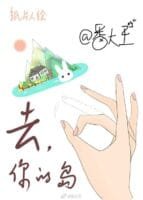

0 Comments